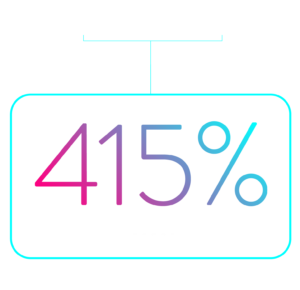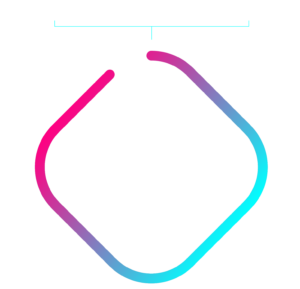Modern problems demand agile leadership skills. Leaders are facing increasingly complex challenges like hybrid working, DE&I initiatives and economic volatility. There is more pressure than ever to lead with empathy, be digitally nimble and foster inclusive communities.
Talent development can help your people grow a breadth of skills that help them become strong and well-rounded leaders. Inspire transformative change with a blended learning journey that encompasses bespoke solutions for your organisation and develops relevant skills for your talent. From VR simulations to mentorship coaching, Alchemist combines ground-breaking programmes with a deep understanding of your unique culture to deliver impactful outcomes.

Future Focus
A risk-averse culture that overlooks adaptability can leave you with blind spots. Whether you face challenges in cyber security or environmental, social and governance (ESG), without a proactive approach you can lose opportunities to more agile competitors.
Future-proof your business with creative management training that promotes the necessary qualities to enhance your ongoing leadership strategy. With critical, future-focused skills development in a tailored programme, your people can feel empowered to get ahead of the curve.
Leading High-Performing Teams
An underperforming team can be a symptom of underdeveloped leadership. Ambiguous targets and poor communication can make it hard to accurately monitor performance. To perform at their peak, teams need to be nurtured in an inclusive environment where individual strengths are leveraged to achieve a common goal.
Your people can develop these crucial leadership skills through immersive learning experiences. Highlighting why these traits are so important and how they can benefit leadership is the first step. With enriched content, together we can help your talent learn the skills to become high performance leaders, before practising them in actor-led scenarios that reflect their real-world challenges.


Emotional Intelligence
Emotional intelligence (EQ) refers to your ability to recognise, understand and manage the emotions of yourself and others. A leader with low EQ can make their team feel like they need to tread on eggshells, or that they aren’t approachable, and can undermine team dynamics.
With a focus on raising self-awareness, Alchemist’s leadership programmes nurture EQ, enabling your leaders to cultivate a robust team. With tools like a 360 degree feedback platform, your leaders can get a clear picture of where they are in their development before engaging in personalised learning to enhance their emotional intelligence skills.
Leadership Communication
Challenges with communication can ripple out into much larger problems if left unchecked. Without communicating effectively, leaders can find themselves overwhelmed, while tension grows in their team as people become frustrated.
Designed to enhance characteristics that people managers need to lead from the front, together we can build a programme that utilises diagnostic tools that provide easy-to-use data – giving you a clear vision of areas for development. Targeting these areas with relevant training, your leaders can evolve their communication abilities in a learning partnership that feels like a natural extension of your organisation.

Leading As A Coach
If you’re struggling with an unhealthy workplace culture, coach leadership might help. Nurturing individuals and teams, encouraging personal development, facilitating collaboration, and celebrating wins are core elements of this leadership style. By developing these skills, your leaders are better able to support their teams and encourage more creativity.
With a human-centred approach, your leaders get a deep understanding of their team dynamics and how they can use coach leadership to deliver greater results. By using immersive experiences, we can embed profound learning that creates sustainable change.
Inclusive Leadership
Inclusivity can have an impact on your bottom line. Uninclusive environments can disengage your team members, making them less productive and less satisfied at work. It doesn’t stop there either, Deloitte found that companies who embodied inclusive leadership had 17% higher customer satisfaction than those who didn’t.
An inclusive culture begins with self-awareness. Leaders must acknowledging their biases and actively seek diverse perspectives. Together we can help your leaders leverage these characteristics in their own interactions and decision making. By simulating real-world scenarios, our coaching mentors help your talent understand their blind spots and how to create a culture of inclusion.

Leone, P. (2014). Was It Worth It?. In: Measuring and Maximizing Training Impact. Palgrave Macmillan, New York. https://doi.org/10.1057/9781137410481_6
Latest Publications About Management Development
Frequently Asked Questions
Why is management development important?
Management development is important for your organisation because it will boost performance by enabling your talent to grow. Identifying skill gaps and targeting them with tailored learning and development helps you to cultivate a high performance team.
What are key leadership skills?
5 key leadership skills you should consider developing in your team are:
- Active listening
- Emotional intelligence
- Communication
- Coaching
- Inclusivity
What are the characteristics of future-focused leadership?
Some characteristics of future-focused leadership are being flexible, proactive and adaptive. Being able to identify trends in your industry and adopting them early will help give you a competitive advantage, as will taking proactive action to tackle future challenges concerning things like cyber-security or environmental, social and governance issues.
How do you lead a high performance team?
You can lead a high performance team by enabling all members to perform at their highest level. This is possible when you nurture an inclusive environment that uses individual strengths to create a formidable team.
What is emotional intelligence in leadership?
Emotional intelligence in leadership is having the ability to recognise and understand emotions in yourself and your team. In doing so, you are able to demonstrate emotional regulation and be more empathetic towards others. This helps build trust, encourages open communication and generally improves connections.
How do you communicate effectively as a leader?
Communicating effectively as a leader is possible when you foster an environment of openness and honesty. Being available to your team and genuinely listening to them helps build their trust in you, making it easier to communicate with them. Emotional intelligence and body language are also important to your communication style.
Contact Us
Contact us today to take the first steps in transformative management development with Alchemist’s blended learning.





